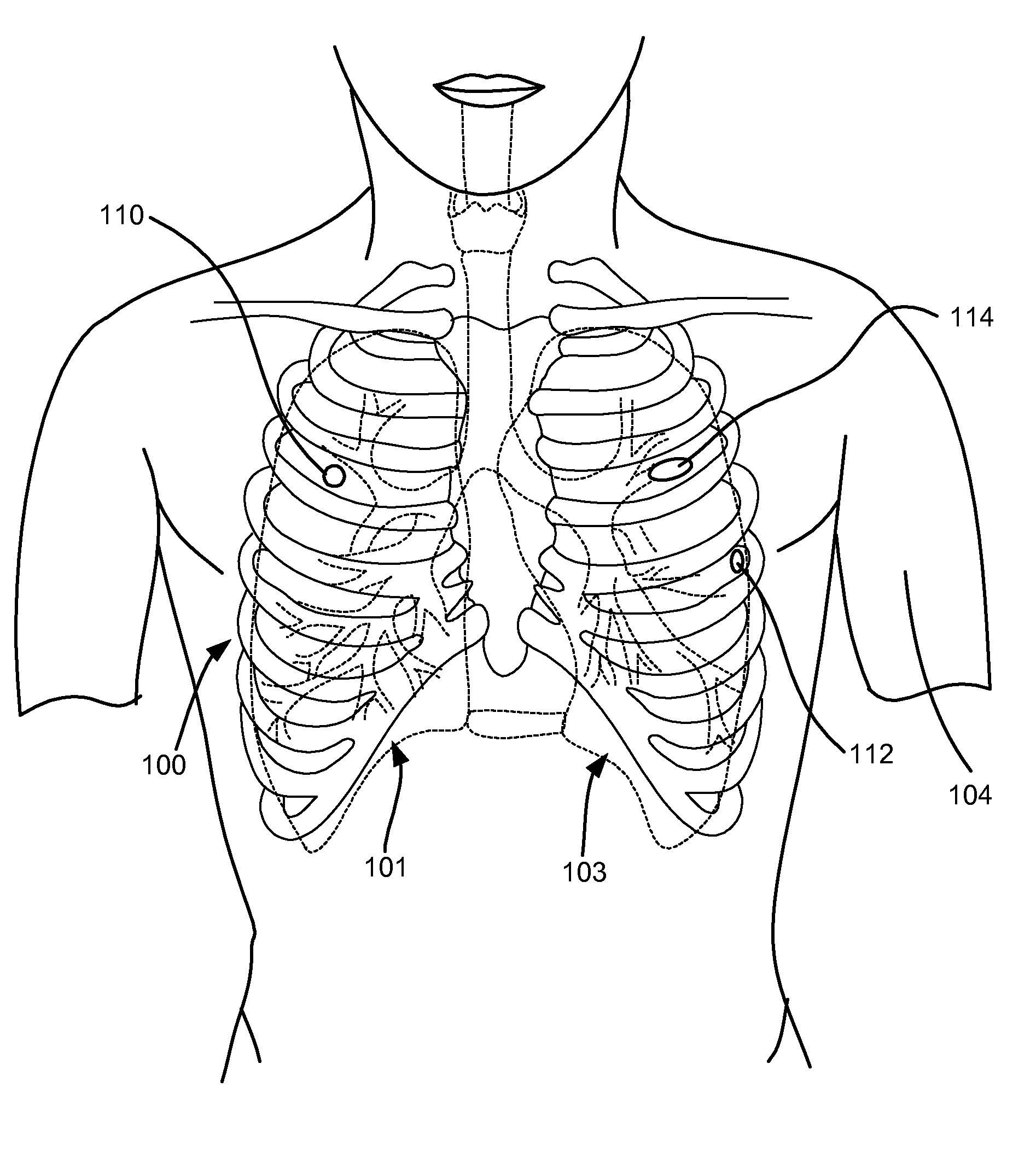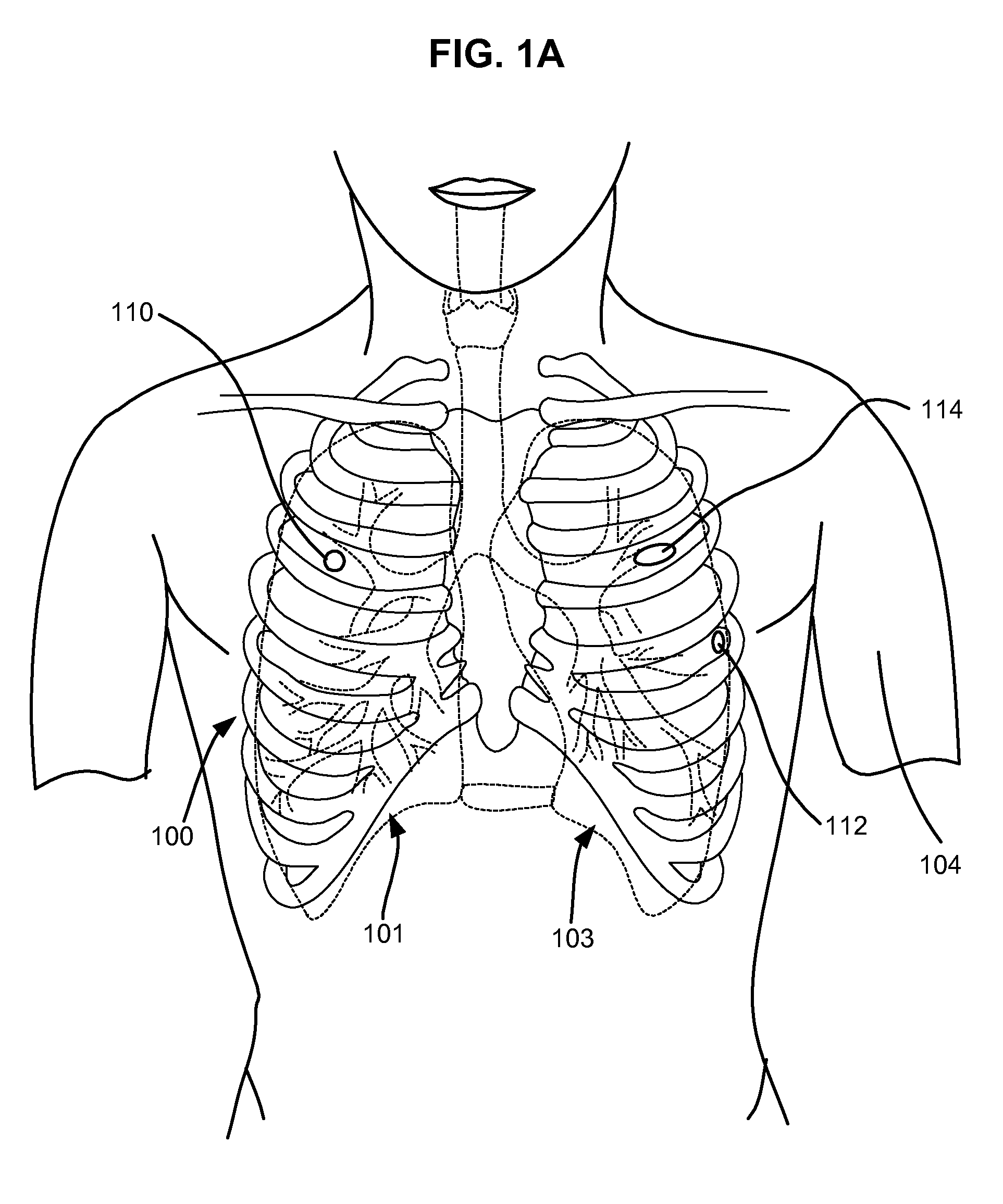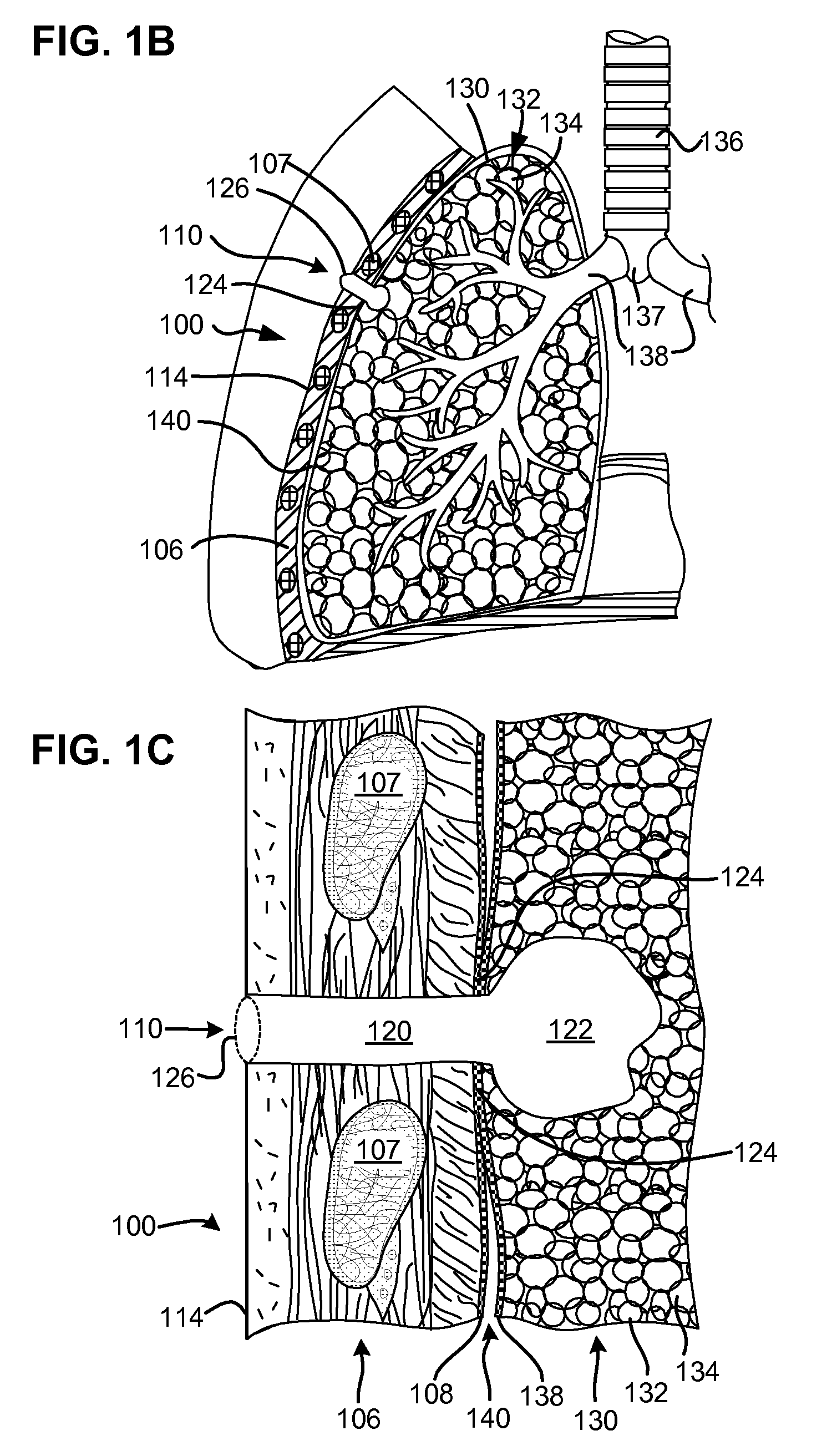Surgical instruments for creating a pneumostoma and treating chronic obstructive pulmonary disease
a technology of surgical instruments and obstructive pulmonary disease, which is applied in the direction of respirators, catheters, wound drains, etc., can solve the problems of increased exhalation work, hyperinflation of the lung, and significant underdiagnosis of obstructive pulmonary disease, and achieve the effect of stabilizing the artificial apertur
- Summary
- Abstract
- Description
- Claims
- Application Information
AI Technical Summary
Benefits of technology
Problems solved by technology
Method used
Image
Examples
Embodiment Construction
[0078]The following description is of the best modes presently contemplated for practicing various embodiments of the present invention. The description is not to be taken in a limiting sense but is made merely for the purpose of describing the general principles of the invention. The scope of the invention should be ascertained with reference to the claims. In the description of the invention that follows, like numerals or reference designators will be used to refer to like parts or elements throughout. In addition, the first digit of a reference number identifies the drawing in which the reference number first appears.
Pneumostoma Anatomy
[0079]FIG. 1A shows the chest of patient indicating alternative locations for creating a pneumostoma that may be managed using the system and methods of the present invention. A first pneumostoma 110 is shown on the front of the chest 100 over the right lung 101 (shown in dashed lines). The pneumostoma is preferably positioned over the second or th...
PUM
 Login to View More
Login to View More Abstract
Description
Claims
Application Information
 Login to View More
Login to View More - R&D
- Intellectual Property
- Life Sciences
- Materials
- Tech Scout
- Unparalleled Data Quality
- Higher Quality Content
- 60% Fewer Hallucinations
Browse by: Latest US Patents, China's latest patents, Technical Efficacy Thesaurus, Application Domain, Technology Topic, Popular Technical Reports.
© 2025 PatSnap. All rights reserved.Legal|Privacy policy|Modern Slavery Act Transparency Statement|Sitemap|About US| Contact US: help@patsnap.com



